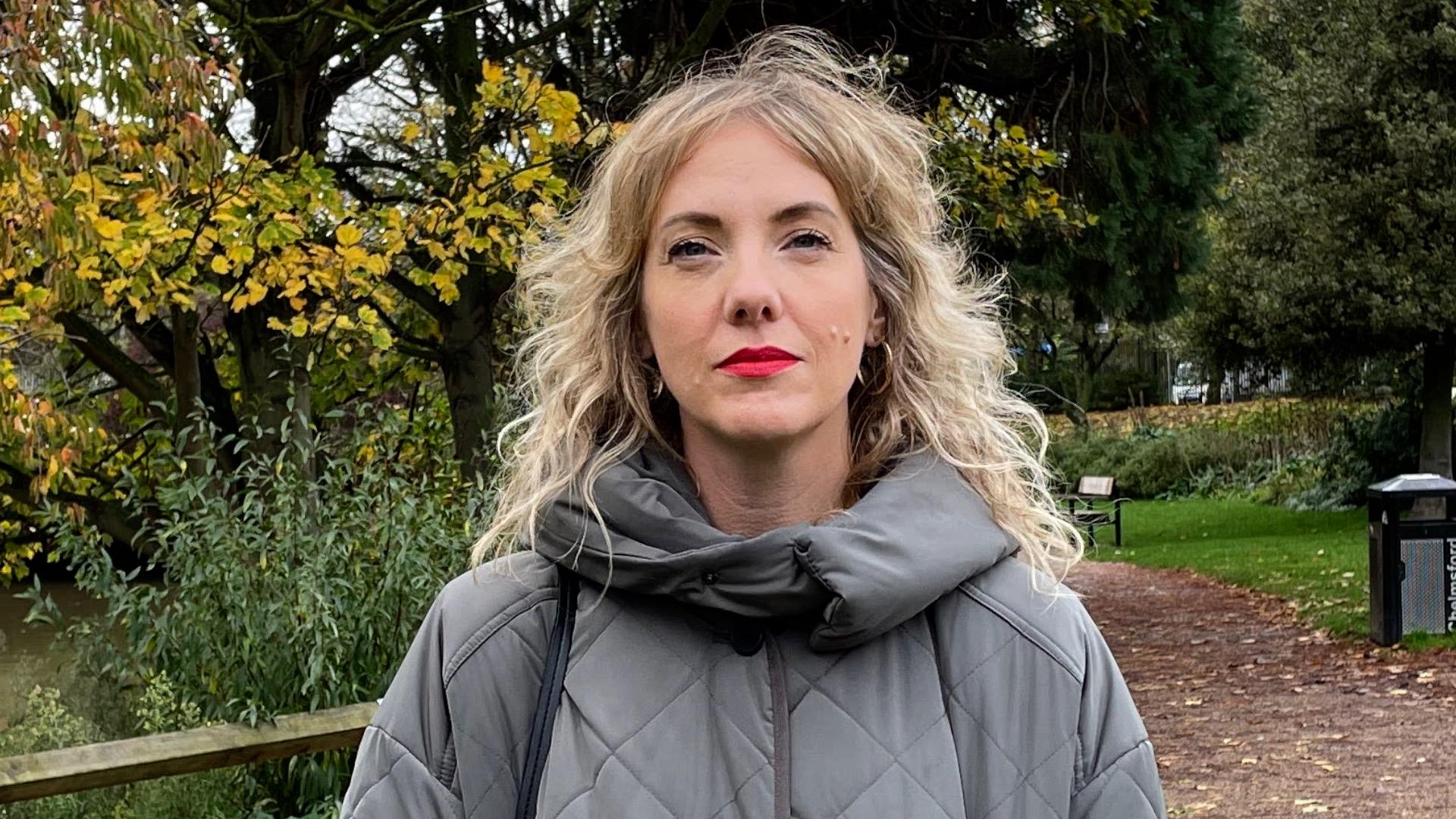More than 100 join Ipswich reclaim the night march
- Published
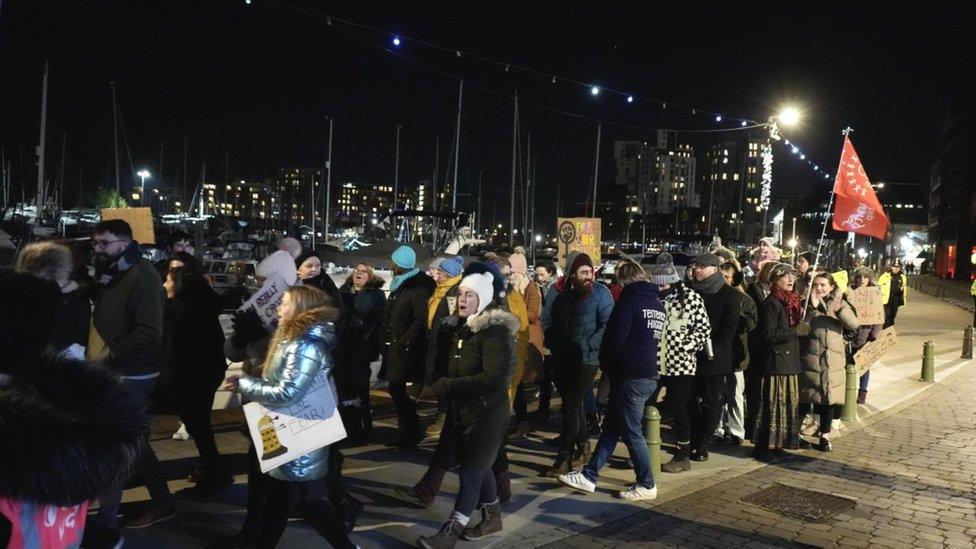
About 125 people marched in support of women's safety
More than 100 people gathered in solidarity over violence against women and girls at a Reclaim The Night march.
People of all ages, students and young families were among those who gathered at Ipswich's Waterfront.
Organiser Isabelle Booth, from Suffolk Rape Crisis, said the march remained important as violence against women and girls was still happening.
"I think you'd be hard pushed to find a woman who hasn't experienced some form of sexual violence," she said.
Ms Booth, 27, said it was "probably one of our most successful reclaim the nights" with about 125 people on the march.
"I think it's important because we still haven't ended violence against women and girls, ultimately."
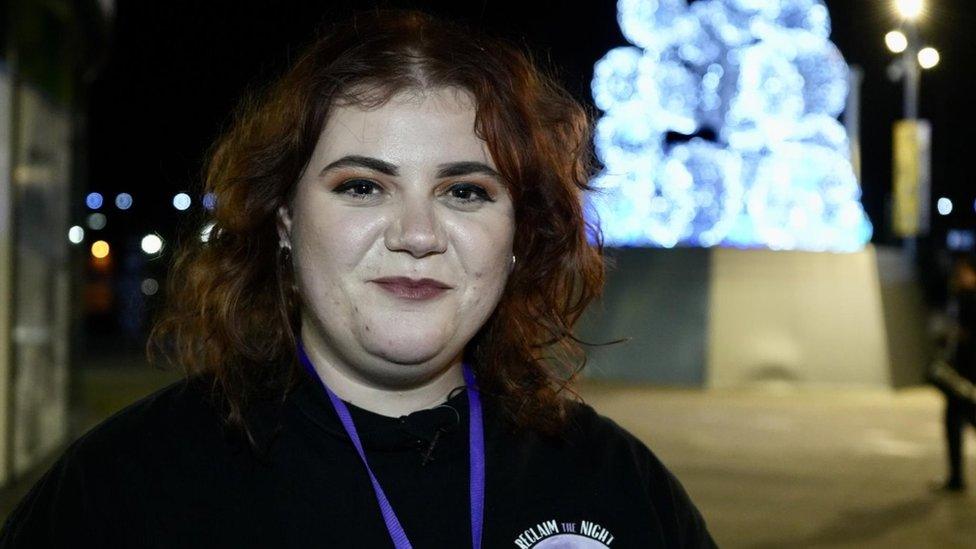
March organiser Isabelle Booth said the march symbolised solidarity
She said the original marches in the 1970s were about taking back the streets and feeling safe outside after dark.
"And that's still an issue we face in today's society, but also it has connections to societal violence where women aren't safe in their homes; actually they aren't safe most of the places they go," Ms Booth said.
"So I think this march really symbolises solidarity and collective actions and that we have a presence here and are going to be heard.
"I love that we have men [attending] and young children - because it's never too early to be talking about women's rights.
"I think we should all be comfortable talking about this kind of thing."
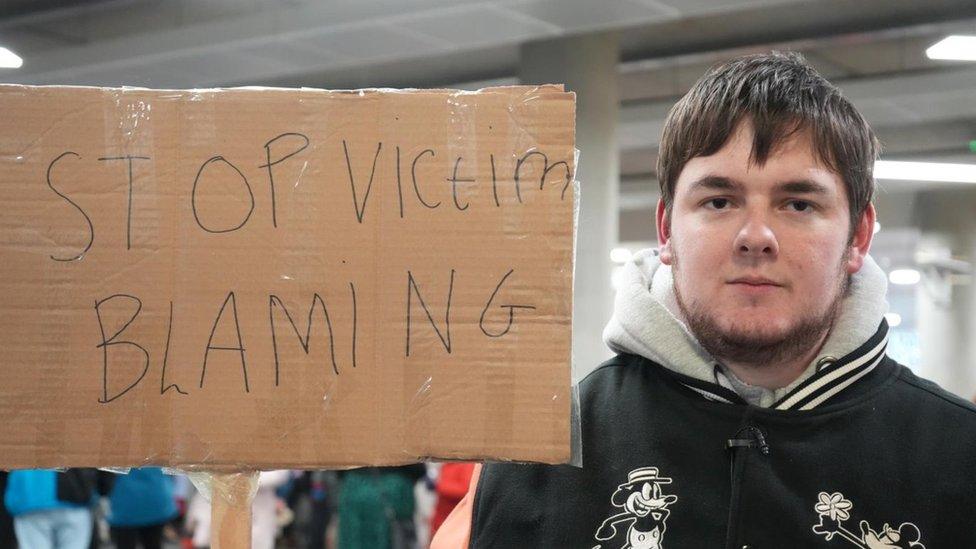
Jamie Lea, from the University of Suffolk, said he marched because he knew many women who did not feel safe
Jamie Lea, 22, is the student disability officer at the University of Suffolk, and said he decided to take part after hearing stories from his female friends who were often scared to go out at night.
"I think it's not just women's responsibility to keep themselves safe, men need to act and talk to friends if they make inappropriate comments," he said.
"Men need to actually look at themselves and other men - that's where the issue is.
"Women have done nothing wrong, it doesn't matter how they dress, it doesn't matter what they do.
"They should not feel unsafe and it's men's responsibility to stop that culture of thinking it's OK to do whatever they want and that's why I came along.
"As a man that is your responsibility to stop making that normalised."
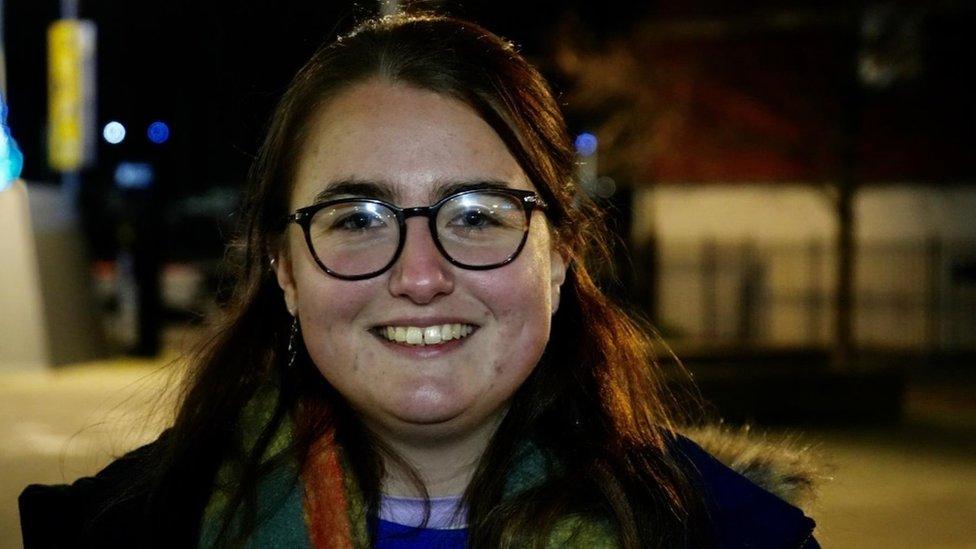
Leesha Daniells, women's officer at the University of Suffolk said some women also felt unsafe in daylight hours
Leesha Daniells, 20, women's officer at the university's students union, said female students regularly reported feeling unsafe in Ipswich.
"It's important to recognise violence against women is still prominent," she said.
"As the university is growing, more students are coming to Ipswich, so it's important we're safe here and it's an opportunity to voice their anger about how violence against women and girls is still prominent."
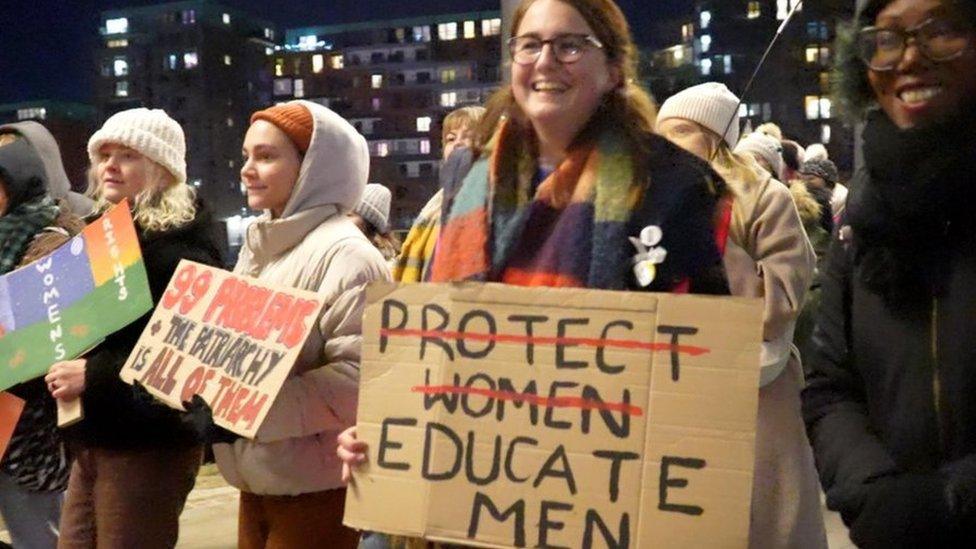
The march took place in Ipswich on Thursday night
She said there was a common perception that danger to women was linked to bars or clubs, but it was also an issue walking to and from university, which is based on Ipswich waterfront, during the day.
"I know a lot of people have been harassed just walking to uni," said Ms Daniells.
"Going into town is not particularly safe either, and going into bars - it's definitely a worry for students."
She said practical steps such as increased street lighting, police presence and other organisations in town at night would help, but the focus had to be on changing cultural attitudes too.
"At the end of the day men need to stop hurting women, there's no plainer way to say it," she said.

Find BBC News: East of England on Facebook, external, Instagram, external and Twitter, external. If you have a story suggestion email eastofenglandnews@bbc.co.uk, external
Related topics
- Published29 November 2022
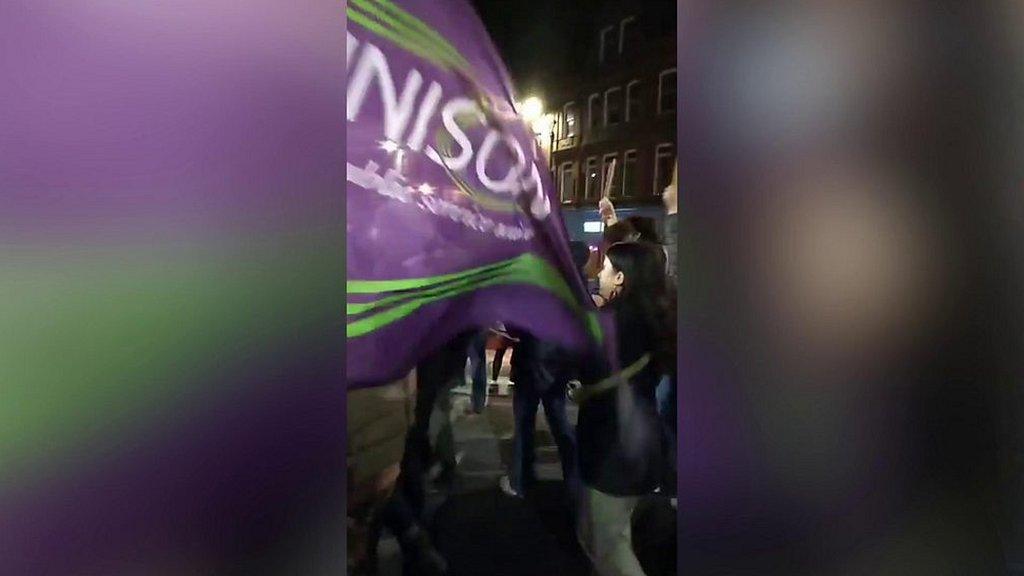
- Published27 November 2022
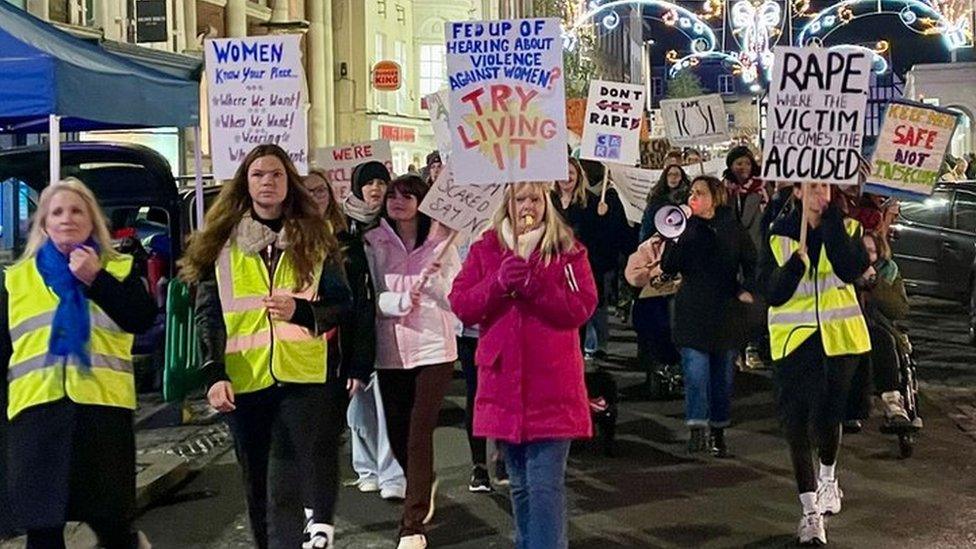
- Published25 November 2022
